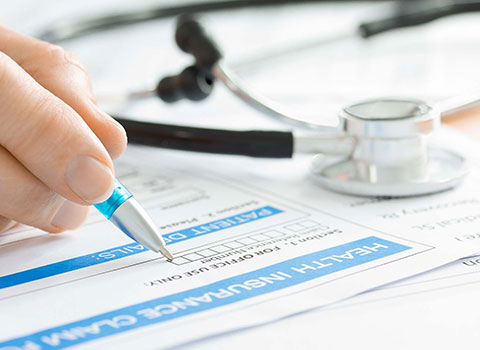 https://carethatfitsyou.org/wp-content/uploads/2023/01/CTFY-Web-image-8315_Undetectable.jpg
325
570
Admin
https://carethatfitsyou.org/wp-content/uploads/2020/04/care-that-fits-you.png
Admin2024-05-20 20:01:352024-06-10 19:21:29Información de la Mpox
https://carethatfitsyou.org/wp-content/uploads/2023/01/CTFY-Web-image-8315_Undetectable.jpg
325
570
Admin
https://carethatfitsyou.org/wp-content/uploads/2020/04/care-that-fits-you.png
Admin2024-05-20 20:01:352024-06-10 19:21:29Información de la Mpox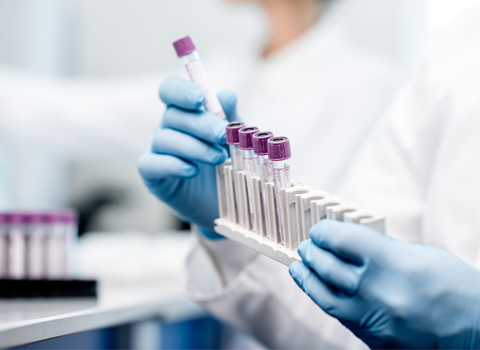
New Gonorrhea Strain: What You Need to Know
Gonorrhea is a common bacterial infection that’s spread through sexual contact and usually cured with antibiotics. Normally, gonorrhea is something that can easily be treated with antibiotics if you test positive. But in early 2023, a new strain of gonorrhea was identified in Massachusetts. In the laboratory, this new strain has reduced response to the antibiotics used to cure the infection. This means in the future it may be much harder to treat and cure infection.
It’s serious news, but there are precautions you can take to help protect yourself and your partners. The best thing you can do is understand what steps you can take to lower your risk of exposure.
Understanding Spread and Symptoms
Gonorrhea is spread through anal, oral, or vaginal sex. Symptoms usually appear quickly, within a few weeks, and can include a burning sensation, abnormal discharge, swelling, and/or pain.
But it’s important to note that you can have gonorrhea and not show symptoms. If left untreated, it can result in serious conditions like pelvic inflammatory disease, infertility, and other health problems.
What You Can Do
The discovery of this new concerning strain of gonorrhea needs to be taken seriously as it is a serious public health concern. If you’re sexually active, here are some steps you can take to help protect yourself and your partners:
- Get tested regularly for all sexually transmitted infections, whether or not you have symptoms. Sexually active gay, bisexual, and other men who have sex with me should get tested for gonorrhea at least every year;
- Most of the time a health care provider will test a urine sample for gonorrhea. If you have oral, anal, or vaginal sex, it is important to also collect and test samples from your throat, rectum and/or vagina.
- Increase your use of condoms when having sex;
- Consider reducing the number of sexual partners you have to limit your risk.
If you test positive
- Your health care provider will give you antibiotics to cure the infection.
- Get re-tested about 2 weeks after treatment. This is known as “test of cure”.
- Make sure your partners get tested and treated as well. If you need help with this, contact the Partner Services Program (PSP), a free service in Massachusetts that helps people who have been diagnosed with STDs and HIV to notify their partners—and get them the care they need.
How to Get Help
To combat the new strain of gonorrhea, health organizations in Massachusetts and across the country are expanding testing for gonorrhea and expanding efforts to look for increasing resistance.
If you want to get tested or find more information, contact your doctor or healthcare provider. If you don’t have a doctor, you can Find A Provider here.
 https://carethatfitsyou.org/wp-content/uploads/2023/01/CTFY-Web-image-8315_Undetectable.jpg
325
570
Admin
https://carethatfitsyou.org/wp-content/uploads/2020/04/care-that-fits-you.png
Admin2024-05-20 20:01:352024-06-10 19:21:29Información de la Mpox
https://carethatfitsyou.org/wp-content/uploads/2023/01/CTFY-Web-image-8315_Undetectable.jpg
325
570
Admin
https://carethatfitsyou.org/wp-content/uploads/2020/04/care-that-fits-you.png
Admin2024-05-20 20:01:352024-06-10 19:21:29Información de la Mpox https://carethatfitsyou.org/wp-content/uploads/2023/01/CTFY-Web-image-7658-hepa.jpg
325
570
Admin
https://carethatfitsyou.org/wp-content/uploads/2020/04/care-that-fits-you.png
Admin2024-05-17 17:52:322024-05-28 21:22:00DoxyPEP: Find out if it’s right for you
https://carethatfitsyou.org/wp-content/uploads/2023/01/CTFY-Web-image-7658-hepa.jpg
325
570
Admin
https://carethatfitsyou.org/wp-content/uploads/2020/04/care-that-fits-you.png
Admin2024-05-17 17:52:322024-05-28 21:22:00DoxyPEP: Find out if it’s right for you https://carethatfitsyou.org/wp-content/uploads/2023/10/8375_Clean-2.jpg
565
1200
Admin
https://carethatfitsyou.org/wp-content/uploads/2020/04/care-that-fits-you.png
Admin2023-10-12 13:28:512023-12-15 17:42:27Shigella: Protect yourself and your partners
https://carethatfitsyou.org/wp-content/uploads/2023/10/8375_Clean-2.jpg
565
1200
Admin
https://carethatfitsyou.org/wp-content/uploads/2020/04/care-that-fits-you.png
Admin2023-10-12 13:28:512023-12-15 17:42:27Shigella: Protect yourself and your partners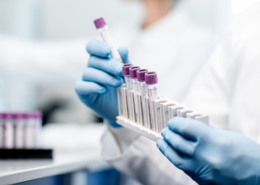 https://carethatfitsyou.org/wp-content/uploads/2023/01/is-there-a-cure-STDs-480x350-1.png
350
480
Administrator
https://carethatfitsyou.org/wp-content/uploads/2020/04/care-that-fits-you.png
Administrator2023-02-01 21:31:302023-02-03 17:45:21New Gonorrhea Strain: What You Need to Know
https://carethatfitsyou.org/wp-content/uploads/2023/01/is-there-a-cure-STDs-480x350-1.png
350
480
Administrator
https://carethatfitsyou.org/wp-content/uploads/2020/04/care-that-fits-you.png
Administrator2023-02-01 21:31:302023-02-03 17:45:21New Gonorrhea Strain: What You Need to Know https://carethatfitsyou.org/wp-content/uploads/2022/08/Mpox_SelfCare_ResizedPhotos_300x250_0723.jpg
250
300
Administrator
https://carethatfitsyou.org/wp-content/uploads/2020/04/care-that-fits-you.png
Administrator2022-08-18 16:22:192024-06-10 19:42:13Mpox Information
https://carethatfitsyou.org/wp-content/uploads/2022/08/Mpox_SelfCare_ResizedPhotos_300x250_0723.jpg
250
300
Administrator
https://carethatfitsyou.org/wp-content/uploads/2020/04/care-that-fits-you.png
Administrator2022-08-18 16:22:192024-06-10 19:42:13Mpox Information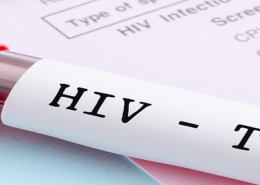 https://carethatfitsyou.org/wp-content/uploads/2022/04/HIV-testing.jpg
300
1000
Administrator
https://carethatfitsyou.org/wp-content/uploads/2020/04/care-that-fits-you.png
Administrator2022-04-19 15:23:482024-06-12 19:52:34What to Expect: HIV Testing
https://carethatfitsyou.org/wp-content/uploads/2022/04/HIV-testing.jpg
300
1000
Administrator
https://carethatfitsyou.org/wp-content/uploads/2020/04/care-that-fits-you.png
Administrator2022-04-19 15:23:482024-06-12 19:52:34What to Expect: HIV Testing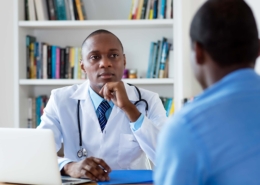 https://carethatfitsyou.org/wp-content/uploads/2022/04/CTFYArticleHeader1_Small_1547949728.jpg
1707
2560
Administrator
https://carethatfitsyou.org/wp-content/uploads/2020/04/care-that-fits-you.png
Administrator2022-04-05 17:14:162023-12-29 19:26:11What to Expect: Starting PrEP
https://carethatfitsyou.org/wp-content/uploads/2022/04/CTFYArticleHeader1_Small_1547949728.jpg
1707
2560
Administrator
https://carethatfitsyou.org/wp-content/uploads/2020/04/care-that-fits-you.png
Administrator2022-04-05 17:14:162023-12-29 19:26:11What to Expect: Starting PrEP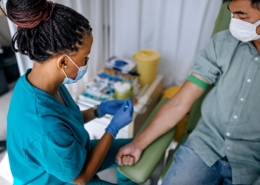 https://carethatfitsyou.org/wp-content/uploads/2022/04/CTFYArticleHeader2_Small_1338750215.jpg
1708
2560
Administrator
https://carethatfitsyou.org/wp-content/uploads/2020/04/care-that-fits-you.png
Administrator2022-04-05 17:14:022024-06-12 19:47:08What to Expect: Getting Tested for STDs/STIs
https://carethatfitsyou.org/wp-content/uploads/2022/04/CTFYArticleHeader2_Small_1338750215.jpg
1708
2560
Administrator
https://carethatfitsyou.org/wp-content/uploads/2020/04/care-that-fits-you.png
Administrator2022-04-05 17:14:022024-06-12 19:47:08What to Expect: Getting Tested for STDs/STIs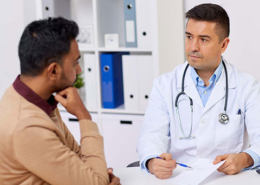 https://carethatfitsyou.org/wp-content/uploads/2020/03/Recently-diagnosed-with-HIV-Ask-your-doctor-these-questions.jpg
350
480
Administrator
https://carethatfitsyou.org/wp-content/uploads/2020/04/care-that-fits-you.png
Administrator2022-01-31 19:30:162023-12-29 19:32:03Apretude – the first injectable PrEP
https://carethatfitsyou.org/wp-content/uploads/2020/03/Recently-diagnosed-with-HIV-Ask-your-doctor-these-questions.jpg
350
480
Administrator
https://carethatfitsyou.org/wp-content/uploads/2020/04/care-that-fits-you.png
Administrator2022-01-31 19:30:162023-12-29 19:32:03Apretude – the first injectable PrEP https://carethatfitsyou.org/wp-content/uploads/2021/06/40_b-1.jpg
350
480
Administrator
https://carethatfitsyou.org/wp-content/uploads/2020/04/care-that-fits-you.png
Administrator2021-06-11 19:31:522021-09-23 15:59:52Getting your partners treated for chlamydia
https://carethatfitsyou.org/wp-content/uploads/2021/06/40_b-1.jpg
350
480
Administrator
https://carethatfitsyou.org/wp-content/uploads/2020/04/care-that-fits-you.png
Administrator2021-06-11 19:31:522021-09-23 15:59:52Getting your partners treated for chlamydia https://carethatfitsyou.org/wp-content/uploads/2020/03/Talking-to-your-doctor-about-PrEP-f.jpg
350
480
ctfyadmin
https://carethatfitsyou.org/wp-content/uploads/2020/04/care-that-fits-you.png
ctfyadmin2020-03-23 21:37:482024-02-28 19:58:12Talking to your provider about PrEP
https://carethatfitsyou.org/wp-content/uploads/2020/03/Talking-to-your-doctor-about-PrEP-f.jpg
350
480
ctfyadmin
https://carethatfitsyou.org/wp-content/uploads/2020/04/care-that-fits-you.png
ctfyadmin2020-03-23 21:37:482024-02-28 19:58:12Talking to your provider about PrEP https://carethatfitsyou.org/wp-content/uploads/2020/03/How-do-I-choose-the-right-condom-f.jpg
350
480
ctfyadmin
https://carethatfitsyou.org/wp-content/uploads/2020/04/care-that-fits-you.png
ctfyadmin2020-03-23 21:26:382021-09-23 16:07:46How do I choose the right condom?
https://carethatfitsyou.org/wp-content/uploads/2020/03/How-do-I-choose-the-right-condom-f.jpg
350
480
ctfyadmin
https://carethatfitsyou.org/wp-content/uploads/2020/04/care-that-fits-you.png
ctfyadmin2020-03-23 21:26:382021-09-23 16:07:46How do I choose the right condom? https://carethatfitsyou.org/wp-content/uploads/2020/03/Conversation-starters-f.jpg
350
480
ctfyadmin
https://carethatfitsyou.org/wp-content/uploads/2020/04/care-that-fits-you.png
ctfyadmin2020-03-23 21:22:082021-09-23 16:08:20Conversation starters
https://carethatfitsyou.org/wp-content/uploads/2020/03/Conversation-starters-f.jpg
350
480
ctfyadmin
https://carethatfitsyou.org/wp-content/uploads/2020/04/care-that-fits-you.png
ctfyadmin2020-03-23 21:22:082021-09-23 16:08:20Conversation starters https://carethatfitsyou.org/wp-content/uploads/2020/03/Whats-the-deal-with-oral-sex-f.jpg
350
480
ctfyadmin
https://carethatfitsyou.org/wp-content/uploads/2020/04/care-that-fits-you.png
ctfyadmin2020-03-23 21:03:022021-09-23 16:08:54What’s the deal with oral sex?
https://carethatfitsyou.org/wp-content/uploads/2020/03/Whats-the-deal-with-oral-sex-f.jpg
350
480
ctfyadmin
https://carethatfitsyou.org/wp-content/uploads/2020/04/care-that-fits-you.png
ctfyadmin2020-03-23 21:03:022021-09-23 16:08:54What’s the deal with oral sex? https://carethatfitsyou.org/wp-content/uploads/2020/03/Tips-for-coming-out-to-your-doctor-f.jpg
350
480
ctfyadmin
https://carethatfitsyou.org/wp-content/uploads/2020/04/care-that-fits-you.png
ctfyadmin2020-03-23 20:59:162021-09-23 16:09:28Tips for coming out to your doctor
https://carethatfitsyou.org/wp-content/uploads/2020/03/Tips-for-coming-out-to-your-doctor-f.jpg
350
480
ctfyadmin
https://carethatfitsyou.org/wp-content/uploads/2020/04/care-that-fits-you.png
ctfyadmin2020-03-23 20:59:162021-09-23 16:09:28Tips for coming out to your doctor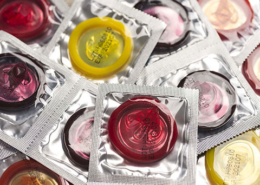 https://carethatfitsyou.org/wp-content/uploads/2020/03/Practicing-safer-sex-when-you-have-genital-herpes-f.jpg
350
480
ctfyadmin
https://carethatfitsyou.org/wp-content/uploads/2020/04/care-that-fits-you.png
ctfyadmin2020-03-23 20:54:232021-09-23 15:03:04Practicing safer sex when you have genital herpes
https://carethatfitsyou.org/wp-content/uploads/2020/03/Practicing-safer-sex-when-you-have-genital-herpes-f.jpg
350
480
ctfyadmin
https://carethatfitsyou.org/wp-content/uploads/2020/04/care-that-fits-you.png
ctfyadmin2020-03-23 20:54:232021-09-23 15:03:04Practicing safer sex when you have genital herpes https://carethatfitsyou.org/wp-content/uploads/2020/03/You-tested-positive-for-gonorrhea-or-chlamydia-Whats-next-f.jpg
350
480
ctfyadmin
https://carethatfitsyou.org/wp-content/uploads/2020/04/care-that-fits-you.png
ctfyadmin2020-03-23 20:50:102021-09-23 15:03:46You tested positive for gonorrhea or chlamydia. What’s next?
https://carethatfitsyou.org/wp-content/uploads/2020/03/You-tested-positive-for-gonorrhea-or-chlamydia-Whats-next-f.jpg
350
480
ctfyadmin
https://carethatfitsyou.org/wp-content/uploads/2020/04/care-that-fits-you.png
ctfyadmin2020-03-23 20:50:102021-09-23 15:03:46You tested positive for gonorrhea or chlamydia. What’s next? https://carethatfitsyou.org/wp-content/uploads/2020/03/You-tested-positive-for-HIV-Now-what-f.jpg
350
480
ctfyadmin
https://carethatfitsyou.org/wp-content/uploads/2020/04/care-that-fits-you.png
ctfyadmin2020-03-23 20:45:282021-09-23 15:04:34You tested positive for HIV. Now what?
https://carethatfitsyou.org/wp-content/uploads/2020/03/You-tested-positive-for-HIV-Now-what-f.jpg
350
480
ctfyadmin
https://carethatfitsyou.org/wp-content/uploads/2020/04/care-that-fits-you.png
ctfyadmin2020-03-23 20:45:282021-09-23 15:04:34You tested positive for HIV. Now what? https://carethatfitsyou.org/wp-content/uploads/2020/03/Ask-for-these-tests-at-your-next-checkup-f.jpg
350
480
ctfyadmin
https://carethatfitsyou.org/wp-content/uploads/2020/04/care-that-fits-you.png
ctfyadmin2020-03-23 20:17:462023-11-13 03:15:47Ask for these tests at your next checkup
https://carethatfitsyou.org/wp-content/uploads/2020/03/Ask-for-these-tests-at-your-next-checkup-f.jpg
350
480
ctfyadmin
https://carethatfitsyou.org/wp-content/uploads/2020/04/care-that-fits-you.png
ctfyadmin2020-03-23 20:17:462023-11-13 03:15:47Ask for these tests at your next checkup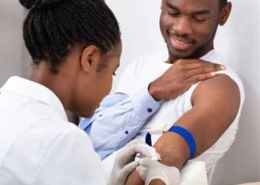 https://carethatfitsyou.org/wp-content/uploads/2020/03/Does-HIV-undetectable-mean-HIV-untransmittable-f3.jpg
350
480
ctfyadmin
https://carethatfitsyou.org/wp-content/uploads/2020/04/care-that-fits-you.png
ctfyadmin2020-03-23 20:13:492021-09-23 15:26:46Does HIV undetectable mean HIV untransmittable?
https://carethatfitsyou.org/wp-content/uploads/2020/03/Does-HIV-undetectable-mean-HIV-untransmittable-f3.jpg
350
480
ctfyadmin
https://carethatfitsyou.org/wp-content/uploads/2020/04/care-that-fits-you.png
ctfyadmin2020-03-23 20:13:492021-09-23 15:26:46Does HIV undetectable mean HIV untransmittable? https://carethatfitsyou.org/wp-content/uploads/2020/03/Eight-conversations-to-have-with-your-doctor-f.jpg
350
480
ctfyadmin
https://carethatfitsyou.org/wp-content/uploads/2020/04/care-that-fits-you.png
ctfyadmin2020-03-23 17:56:462021-09-23 15:28:17Eight conversations to have with your doctor
https://carethatfitsyou.org/wp-content/uploads/2020/03/Eight-conversations-to-have-with-your-doctor-f.jpg
350
480
ctfyadmin
https://carethatfitsyou.org/wp-content/uploads/2020/04/care-that-fits-you.png
ctfyadmin2020-03-23 17:56:462021-09-23 15:28:17Eight conversations to have with your doctor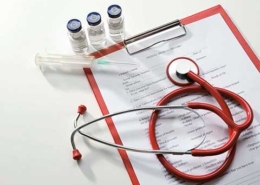 https://carethatfitsyou.org/wp-content/uploads/2020/03/Hep-A-B-C-Whats-the-difference-Light.jpg
350
480
ctfyadmin
https://carethatfitsyou.org/wp-content/uploads/2020/04/care-that-fits-you.png
ctfyadmin2020-03-23 17:29:052024-02-28 19:56:45Hep A, B, and C: What’s the difference?
https://carethatfitsyou.org/wp-content/uploads/2020/03/Hep-A-B-C-Whats-the-difference-Light.jpg
350
480
ctfyadmin
https://carethatfitsyou.org/wp-content/uploads/2020/04/care-that-fits-you.png
ctfyadmin2020-03-23 17:29:052024-02-28 19:56:45Hep A, B, and C: What’s the difference? https://carethatfitsyou.org/wp-content/uploads/2020/03/A-few-things-to-know-about-syphilis-f.jpg
350
480
ctfyadmin
https://carethatfitsyou.org/wp-content/uploads/2020/04/care-that-fits-you.png
ctfyadmin2020-03-23 16:42:362024-06-12 19:49:33A few things to know about syphilis
https://carethatfitsyou.org/wp-content/uploads/2020/03/A-few-things-to-know-about-syphilis-f.jpg
350
480
ctfyadmin
https://carethatfitsyou.org/wp-content/uploads/2020/04/care-that-fits-you.png
ctfyadmin2020-03-23 16:42:362024-06-12 19:49:33A few things to know about syphilis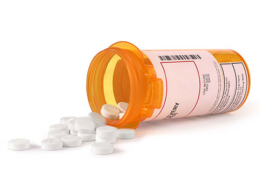 https://carethatfitsyou.org/wp-content/uploads/2020/03/PrEP-vs-PEP-Whats-the-difference-f.jpg
350
480
ctfyadmin
https://carethatfitsyou.org/wp-content/uploads/2020/04/care-that-fits-you.png
ctfyadmin2020-03-21 22:29:262023-12-15 18:19:24PrEP vs PEP: What’s the difference?
https://carethatfitsyou.org/wp-content/uploads/2020/03/PrEP-vs-PEP-Whats-the-difference-f.jpg
350
480
ctfyadmin
https://carethatfitsyou.org/wp-content/uploads/2020/04/care-that-fits-you.png
ctfyadmin2020-03-21 22:29:262023-12-15 18:19:24PrEP vs PEP: What’s the difference? https://carethatfitsyou.org/wp-content/uploads/2020/03/Talking-to-your-partner-about-safer-sex-f.jpg
350
480
ctfyadmin
https://carethatfitsyou.org/wp-content/uploads/2020/04/care-that-fits-you.png
ctfyadmin2020-03-21 22:23:442021-09-23 15:57:27Talking to your partner about safer sex
https://carethatfitsyou.org/wp-content/uploads/2020/03/Talking-to-your-partner-about-safer-sex-f.jpg
350
480
ctfyadmin
https://carethatfitsyou.org/wp-content/uploads/2020/04/care-that-fits-you.png
ctfyadmin2020-03-21 22:23:442021-09-23 15:57:27Talking to your partner about safer sex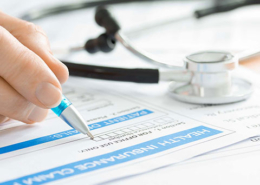 https://carethatfitsyou.org/wp-content/uploads/2020/03/How-to-pay-for-PrEP-f-1.jpg
350
480
ctfyadmin
https://carethatfitsyou.org/wp-content/uploads/2020/04/care-that-fits-you.png
ctfyadmin2020-03-13 19:18:212024-06-12 19:48:11How to pay for PrEP
https://carethatfitsyou.org/wp-content/uploads/2020/03/How-to-pay-for-PrEP-f-1.jpg
350
480
ctfyadmin
https://carethatfitsyou.org/wp-content/uploads/2020/04/care-that-fits-you.png
ctfyadmin2020-03-13 19:18:212024-06-12 19:48:11How to pay for PrEP https://carethatfitsyou.org/wp-content/uploads/2023/01/CTFY-Web-image-8315_Undetectable.jpg
325
570
Admin
https://carethatfitsyou.org/wp-content/uploads/2020/04/care-that-fits-you.png
Admin2024-05-20 20:01:352024-06-10 19:21:29Información de la Mpox
https://carethatfitsyou.org/wp-content/uploads/2023/01/CTFY-Web-image-8315_Undetectable.jpg
325
570
Admin
https://carethatfitsyou.org/wp-content/uploads/2020/04/care-that-fits-you.png
Admin2024-05-20 20:01:352024-06-10 19:21:29Información de la Mpox https://carethatfitsyou.org/wp-content/uploads/2023/01/CTFY-Web-image-7658-hepa.jpg
325
570
Admin
https://carethatfitsyou.org/wp-content/uploads/2020/04/care-that-fits-you.png
Admin2024-05-17 17:52:322024-05-28 21:22:00DoxyPEP: Find out if it’s right for you
https://carethatfitsyou.org/wp-content/uploads/2023/01/CTFY-Web-image-7658-hepa.jpg
325
570
Admin
https://carethatfitsyou.org/wp-content/uploads/2020/04/care-that-fits-you.png
Admin2024-05-17 17:52:322024-05-28 21:22:00DoxyPEP: Find out if it’s right for you https://carethatfitsyou.org/wp-content/uploads/2023/10/8375_Clean-2.jpg
565
1200
Admin
https://carethatfitsyou.org/wp-content/uploads/2020/04/care-that-fits-you.png
Admin2023-10-12 13:28:512023-12-15 17:42:27Shigella: Protect yourself and your partners
https://carethatfitsyou.org/wp-content/uploads/2023/10/8375_Clean-2.jpg
565
1200
Admin
https://carethatfitsyou.org/wp-content/uploads/2020/04/care-that-fits-you.png
Admin2023-10-12 13:28:512023-12-15 17:42:27Shigella: Protect yourself and your partners https://carethatfitsyou.org/wp-content/uploads/2023/01/is-there-a-cure-STDs-480x350-1.png
350
480
Administrator
https://carethatfitsyou.org/wp-content/uploads/2020/04/care-that-fits-you.png
Administrator2023-02-01 21:31:302023-02-03 17:45:21New Gonorrhea Strain: What You Need to Know
https://carethatfitsyou.org/wp-content/uploads/2023/01/is-there-a-cure-STDs-480x350-1.png
350
480
Administrator
https://carethatfitsyou.org/wp-content/uploads/2020/04/care-that-fits-you.png
Administrator2023-02-01 21:31:302023-02-03 17:45:21New Gonorrhea Strain: What You Need to Know https://carethatfitsyou.org/wp-content/uploads/2022/08/Mpox_SelfCare_ResizedPhotos_300x250_0723.jpg
250
300
Administrator
https://carethatfitsyou.org/wp-content/uploads/2020/04/care-that-fits-you.png
Administrator2022-08-18 16:22:192024-06-10 19:42:13Mpox Information
https://carethatfitsyou.org/wp-content/uploads/2022/08/Mpox_SelfCare_ResizedPhotos_300x250_0723.jpg
250
300
Administrator
https://carethatfitsyou.org/wp-content/uploads/2020/04/care-that-fits-you.png
Administrator2022-08-18 16:22:192024-06-10 19:42:13Mpox Information https://carethatfitsyou.org/wp-content/uploads/2022/04/HIV-testing.jpg
300
1000
Administrator
https://carethatfitsyou.org/wp-content/uploads/2020/04/care-that-fits-you.png
Administrator2022-04-19 15:23:482024-06-12 19:52:34What to Expect: HIV Testing
https://carethatfitsyou.org/wp-content/uploads/2022/04/HIV-testing.jpg
300
1000
Administrator
https://carethatfitsyou.org/wp-content/uploads/2020/04/care-that-fits-you.png
Administrator2022-04-19 15:23:482024-06-12 19:52:34What to Expect: HIV Testing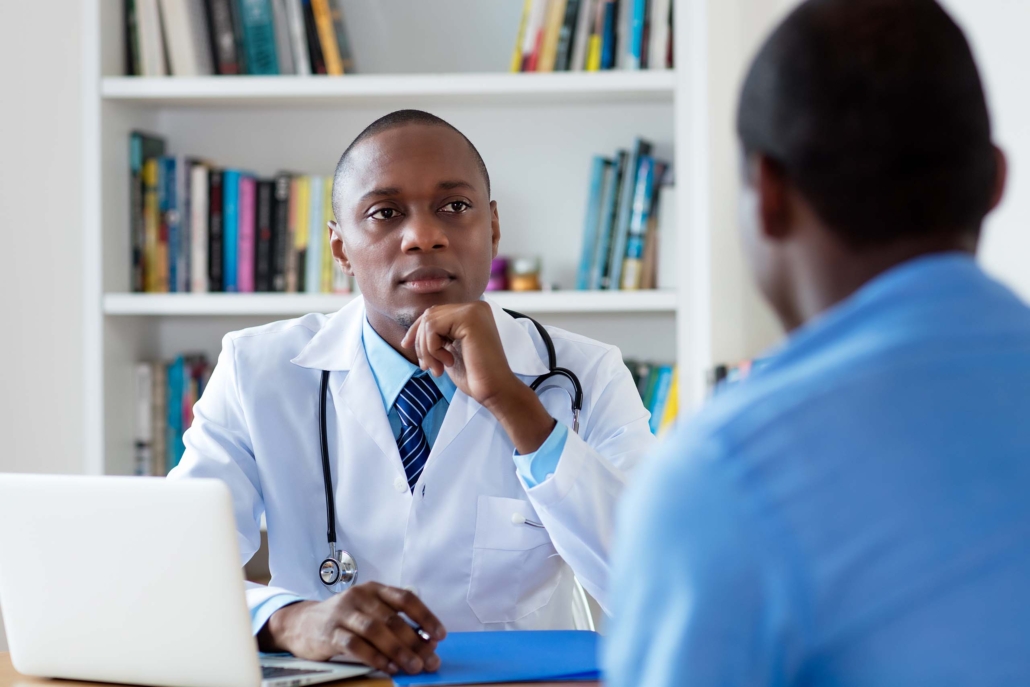 https://carethatfitsyou.org/wp-content/uploads/2022/04/CTFYArticleHeader1_Small_1547949728.jpg
1707
2560
Administrator
https://carethatfitsyou.org/wp-content/uploads/2020/04/care-that-fits-you.png
Administrator2022-04-05 17:14:162023-12-29 19:26:11What to Expect: Starting PrEP
https://carethatfitsyou.org/wp-content/uploads/2022/04/CTFYArticleHeader1_Small_1547949728.jpg
1707
2560
Administrator
https://carethatfitsyou.org/wp-content/uploads/2020/04/care-that-fits-you.png
Administrator2022-04-05 17:14:162023-12-29 19:26:11What to Expect: Starting PrEP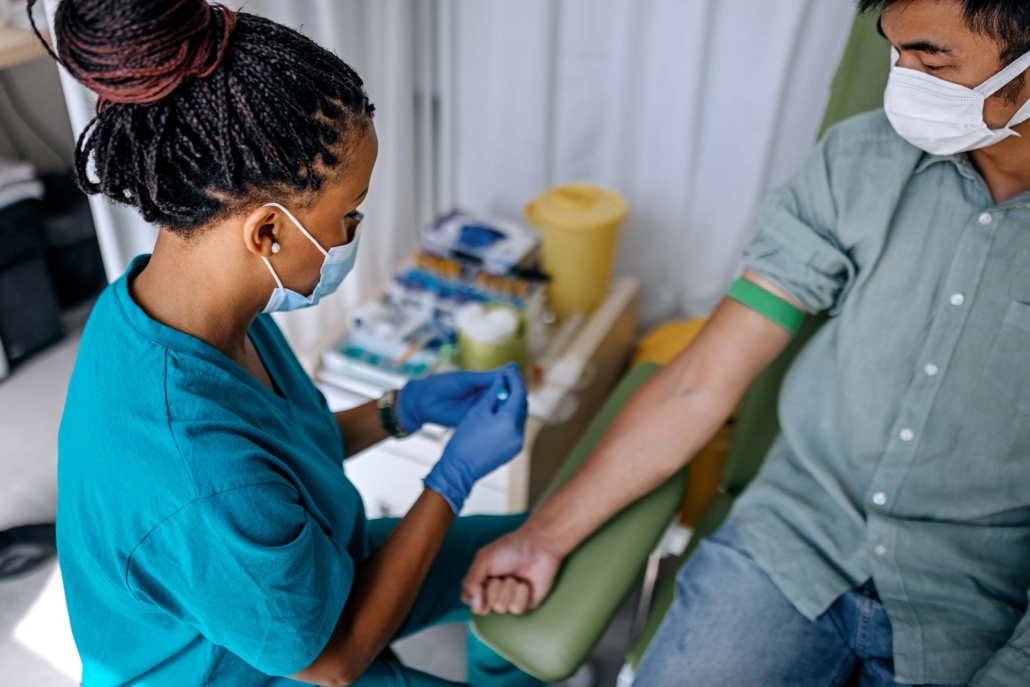 https://carethatfitsyou.org/wp-content/uploads/2022/04/CTFYArticleHeader2_Small_1338750215.jpg
1708
2560
Administrator
https://carethatfitsyou.org/wp-content/uploads/2020/04/care-that-fits-you.png
Administrator2022-04-05 17:14:022024-06-12 19:47:08What to Expect: Getting Tested for STDs/STIs
https://carethatfitsyou.org/wp-content/uploads/2022/04/CTFYArticleHeader2_Small_1338750215.jpg
1708
2560
Administrator
https://carethatfitsyou.org/wp-content/uploads/2020/04/care-that-fits-you.png
Administrator2022-04-05 17:14:022024-06-12 19:47:08What to Expect: Getting Tested for STDs/STIs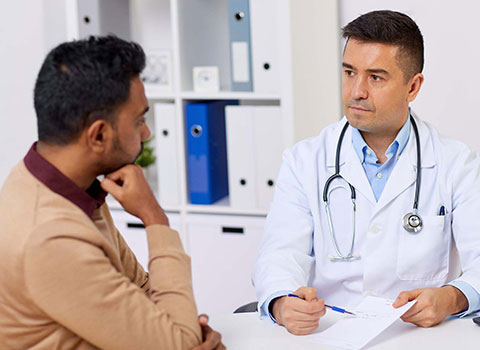 https://carethatfitsyou.org/wp-content/uploads/2020/03/Recently-diagnosed-with-HIV-Ask-your-doctor-these-questions.jpg
350
480
Administrator
https://carethatfitsyou.org/wp-content/uploads/2020/04/care-that-fits-you.png
Administrator2022-01-31 19:30:162023-12-29 19:32:03Apretude – the first injectable PrEP
https://carethatfitsyou.org/wp-content/uploads/2020/03/Recently-diagnosed-with-HIV-Ask-your-doctor-these-questions.jpg
350
480
Administrator
https://carethatfitsyou.org/wp-content/uploads/2020/04/care-that-fits-you.png
Administrator2022-01-31 19:30:162023-12-29 19:32:03Apretude – the first injectable PrEP https://carethatfitsyou.org/wp-content/uploads/2021/06/40_b-1.jpg
350
480
Administrator
https://carethatfitsyou.org/wp-content/uploads/2020/04/care-that-fits-you.png
Administrator2021-06-11 19:31:522021-09-23 15:59:52Getting your partners treated for chlamydia
https://carethatfitsyou.org/wp-content/uploads/2021/06/40_b-1.jpg
350
480
Administrator
https://carethatfitsyou.org/wp-content/uploads/2020/04/care-that-fits-you.png
Administrator2021-06-11 19:31:522021-09-23 15:59:52Getting your partners treated for chlamydia https://carethatfitsyou.org/wp-content/uploads/2020/03/Talking-to-your-doctor-about-PrEP-f.jpg
350
480
ctfyadmin
https://carethatfitsyou.org/wp-content/uploads/2020/04/care-that-fits-you.png
ctfyadmin2020-03-23 21:37:482024-02-28 19:58:12Talking to your provider about PrEP
https://carethatfitsyou.org/wp-content/uploads/2020/03/Talking-to-your-doctor-about-PrEP-f.jpg
350
480
ctfyadmin
https://carethatfitsyou.org/wp-content/uploads/2020/04/care-that-fits-you.png
ctfyadmin2020-03-23 21:37:482024-02-28 19:58:12Talking to your provider about PrEP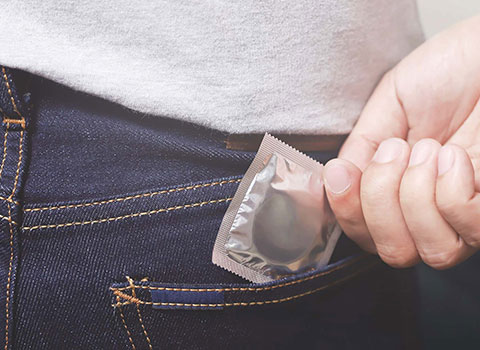 https://carethatfitsyou.org/wp-content/uploads/2020/03/How-do-I-choose-the-right-condom-f.jpg
350
480
ctfyadmin
https://carethatfitsyou.org/wp-content/uploads/2020/04/care-that-fits-you.png
ctfyadmin2020-03-23 21:26:382021-09-23 16:07:46How do I choose the right condom?
https://carethatfitsyou.org/wp-content/uploads/2020/03/How-do-I-choose-the-right-condom-f.jpg
350
480
ctfyadmin
https://carethatfitsyou.org/wp-content/uploads/2020/04/care-that-fits-you.png
ctfyadmin2020-03-23 21:26:382021-09-23 16:07:46How do I choose the right condom? https://carethatfitsyou.org/wp-content/uploads/2020/03/Conversation-starters-f.jpg
350
480
ctfyadmin
https://carethatfitsyou.org/wp-content/uploads/2020/04/care-that-fits-you.png
ctfyadmin2020-03-23 21:22:082021-09-23 16:08:20Conversation starters
https://carethatfitsyou.org/wp-content/uploads/2020/03/Conversation-starters-f.jpg
350
480
ctfyadmin
https://carethatfitsyou.org/wp-content/uploads/2020/04/care-that-fits-you.png
ctfyadmin2020-03-23 21:22:082021-09-23 16:08:20Conversation starters https://carethatfitsyou.org/wp-content/uploads/2020/03/Whats-the-deal-with-oral-sex-f.jpg
350
480
ctfyadmin
https://carethatfitsyou.org/wp-content/uploads/2020/04/care-that-fits-you.png
ctfyadmin2020-03-23 21:03:022021-09-23 16:08:54What’s the deal with oral sex?
https://carethatfitsyou.org/wp-content/uploads/2020/03/Whats-the-deal-with-oral-sex-f.jpg
350
480
ctfyadmin
https://carethatfitsyou.org/wp-content/uploads/2020/04/care-that-fits-you.png
ctfyadmin2020-03-23 21:03:022021-09-23 16:08:54What’s the deal with oral sex? https://carethatfitsyou.org/wp-content/uploads/2020/03/Tips-for-coming-out-to-your-doctor-f.jpg
350
480
ctfyadmin
https://carethatfitsyou.org/wp-content/uploads/2020/04/care-that-fits-you.png
ctfyadmin2020-03-23 20:59:162021-09-23 16:09:28Tips for coming out to your doctor
https://carethatfitsyou.org/wp-content/uploads/2020/03/Tips-for-coming-out-to-your-doctor-f.jpg
350
480
ctfyadmin
https://carethatfitsyou.org/wp-content/uploads/2020/04/care-that-fits-you.png
ctfyadmin2020-03-23 20:59:162021-09-23 16:09:28Tips for coming out to your doctor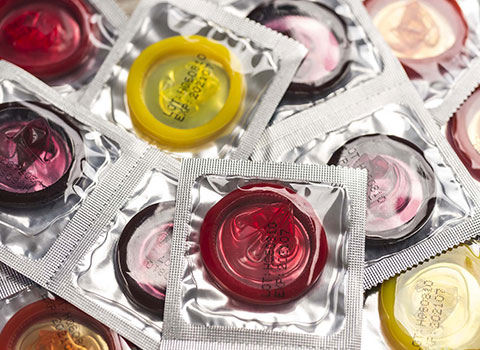 https://carethatfitsyou.org/wp-content/uploads/2020/03/Practicing-safer-sex-when-you-have-genital-herpes-f.jpg
350
480
ctfyadmin
https://carethatfitsyou.org/wp-content/uploads/2020/04/care-that-fits-you.png
ctfyadmin2020-03-23 20:54:232021-09-23 15:03:04Practicing safer sex when you have genital herpes
https://carethatfitsyou.org/wp-content/uploads/2020/03/Practicing-safer-sex-when-you-have-genital-herpes-f.jpg
350
480
ctfyadmin
https://carethatfitsyou.org/wp-content/uploads/2020/04/care-that-fits-you.png
ctfyadmin2020-03-23 20:54:232021-09-23 15:03:04Practicing safer sex when you have genital herpes https://carethatfitsyou.org/wp-content/uploads/2020/03/You-tested-positive-for-gonorrhea-or-chlamydia-Whats-next-f.jpg
350
480
ctfyadmin
https://carethatfitsyou.org/wp-content/uploads/2020/04/care-that-fits-you.png
ctfyadmin2020-03-23 20:50:102021-09-23 15:03:46You tested positive for gonorrhea or chlamydia. What’s next?
https://carethatfitsyou.org/wp-content/uploads/2020/03/You-tested-positive-for-gonorrhea-or-chlamydia-Whats-next-f.jpg
350
480
ctfyadmin
https://carethatfitsyou.org/wp-content/uploads/2020/04/care-that-fits-you.png
ctfyadmin2020-03-23 20:50:102021-09-23 15:03:46You tested positive for gonorrhea or chlamydia. What’s next?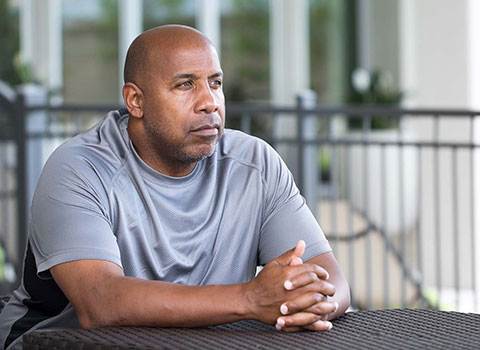 https://carethatfitsyou.org/wp-content/uploads/2020/03/You-tested-positive-for-HIV-Now-what-f.jpg
350
480
ctfyadmin
https://carethatfitsyou.org/wp-content/uploads/2020/04/care-that-fits-you.png
ctfyadmin2020-03-23 20:45:282021-09-23 15:04:34You tested positive for HIV. Now what?
https://carethatfitsyou.org/wp-content/uploads/2020/03/You-tested-positive-for-HIV-Now-what-f.jpg
350
480
ctfyadmin
https://carethatfitsyou.org/wp-content/uploads/2020/04/care-that-fits-you.png
ctfyadmin2020-03-23 20:45:282021-09-23 15:04:34You tested positive for HIV. Now what? https://carethatfitsyou.org/wp-content/uploads/2020/03/Ask-for-these-tests-at-your-next-checkup-f.jpg
350
480
ctfyadmin
https://carethatfitsyou.org/wp-content/uploads/2020/04/care-that-fits-you.png
ctfyadmin2020-03-23 20:17:462023-11-13 03:15:47Ask for these tests at your next checkup
https://carethatfitsyou.org/wp-content/uploads/2020/03/Ask-for-these-tests-at-your-next-checkup-f.jpg
350
480
ctfyadmin
https://carethatfitsyou.org/wp-content/uploads/2020/04/care-that-fits-you.png
ctfyadmin2020-03-23 20:17:462023-11-13 03:15:47Ask for these tests at your next checkup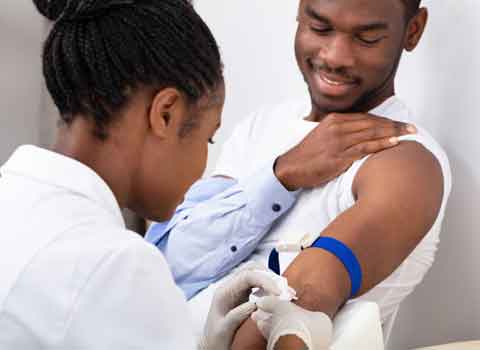 https://carethatfitsyou.org/wp-content/uploads/2020/03/Does-HIV-undetectable-mean-HIV-untransmittable-f3.jpg
350
480
ctfyadmin
https://carethatfitsyou.org/wp-content/uploads/2020/04/care-that-fits-you.png
ctfyadmin2020-03-23 20:13:492021-09-23 15:26:46Does HIV undetectable mean HIV untransmittable?
https://carethatfitsyou.org/wp-content/uploads/2020/03/Does-HIV-undetectable-mean-HIV-untransmittable-f3.jpg
350
480
ctfyadmin
https://carethatfitsyou.org/wp-content/uploads/2020/04/care-that-fits-you.png
ctfyadmin2020-03-23 20:13:492021-09-23 15:26:46Does HIV undetectable mean HIV untransmittable? https://carethatfitsyou.org/wp-content/uploads/2020/03/Eight-conversations-to-have-with-your-doctor-f.jpg
350
480
ctfyadmin
https://carethatfitsyou.org/wp-content/uploads/2020/04/care-that-fits-you.png
ctfyadmin2020-03-23 17:56:462021-09-23 15:28:17Eight conversations to have with your doctor
https://carethatfitsyou.org/wp-content/uploads/2020/03/Eight-conversations-to-have-with-your-doctor-f.jpg
350
480
ctfyadmin
https://carethatfitsyou.org/wp-content/uploads/2020/04/care-that-fits-you.png
ctfyadmin2020-03-23 17:56:462021-09-23 15:28:17Eight conversations to have with your doctor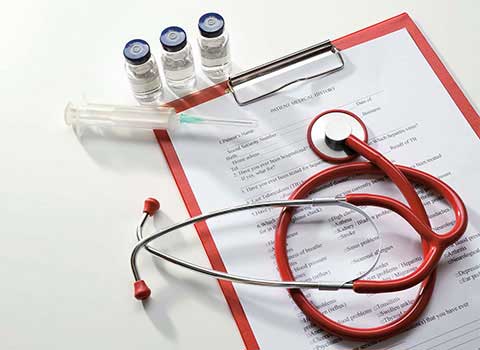 https://carethatfitsyou.org/wp-content/uploads/2020/03/Hep-A-B-C-Whats-the-difference-Light.jpg
350
480
ctfyadmin
https://carethatfitsyou.org/wp-content/uploads/2020/04/care-that-fits-you.png
ctfyadmin2020-03-23 17:29:052024-02-28 19:56:45Hep A, B, and C: What’s the difference?
https://carethatfitsyou.org/wp-content/uploads/2020/03/Hep-A-B-C-Whats-the-difference-Light.jpg
350
480
ctfyadmin
https://carethatfitsyou.org/wp-content/uploads/2020/04/care-that-fits-you.png
ctfyadmin2020-03-23 17:29:052024-02-28 19:56:45Hep A, B, and C: What’s the difference? https://carethatfitsyou.org/wp-content/uploads/2020/03/A-few-things-to-know-about-syphilis-f.jpg
350
480
ctfyadmin
https://carethatfitsyou.org/wp-content/uploads/2020/04/care-that-fits-you.png
ctfyadmin2020-03-23 16:42:362024-06-12 19:49:33A few things to know about syphilis
https://carethatfitsyou.org/wp-content/uploads/2020/03/A-few-things-to-know-about-syphilis-f.jpg
350
480
ctfyadmin
https://carethatfitsyou.org/wp-content/uploads/2020/04/care-that-fits-you.png
ctfyadmin2020-03-23 16:42:362024-06-12 19:49:33A few things to know about syphilis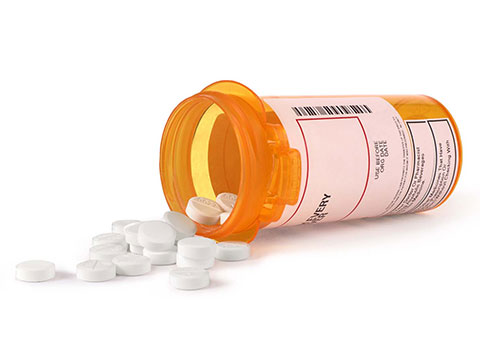 https://carethatfitsyou.org/wp-content/uploads/2020/03/PrEP-vs-PEP-Whats-the-difference-f.jpg
350
480
ctfyadmin
https://carethatfitsyou.org/wp-content/uploads/2020/04/care-that-fits-you.png
ctfyadmin2020-03-21 22:29:262023-12-15 18:19:24PrEP vs PEP: What’s the difference?
https://carethatfitsyou.org/wp-content/uploads/2020/03/PrEP-vs-PEP-Whats-the-difference-f.jpg
350
480
ctfyadmin
https://carethatfitsyou.org/wp-content/uploads/2020/04/care-that-fits-you.png
ctfyadmin2020-03-21 22:29:262023-12-15 18:19:24PrEP vs PEP: What’s the difference? https://carethatfitsyou.org/wp-content/uploads/2020/03/Talking-to-your-partner-about-safer-sex-f.jpg
350
480
ctfyadmin
https://carethatfitsyou.org/wp-content/uploads/2020/04/care-that-fits-you.png
ctfyadmin2020-03-21 22:23:442021-09-23 15:57:27Talking to your partner about safer sex
https://carethatfitsyou.org/wp-content/uploads/2020/03/Talking-to-your-partner-about-safer-sex-f.jpg
350
480
ctfyadmin
https://carethatfitsyou.org/wp-content/uploads/2020/04/care-that-fits-you.png
ctfyadmin2020-03-21 22:23:442021-09-23 15:57:27Talking to your partner about safer sexLooking for PrEP or
other services?
Search for services near you.
Is PrEP right for you?
Take a short quiz to learn more.


